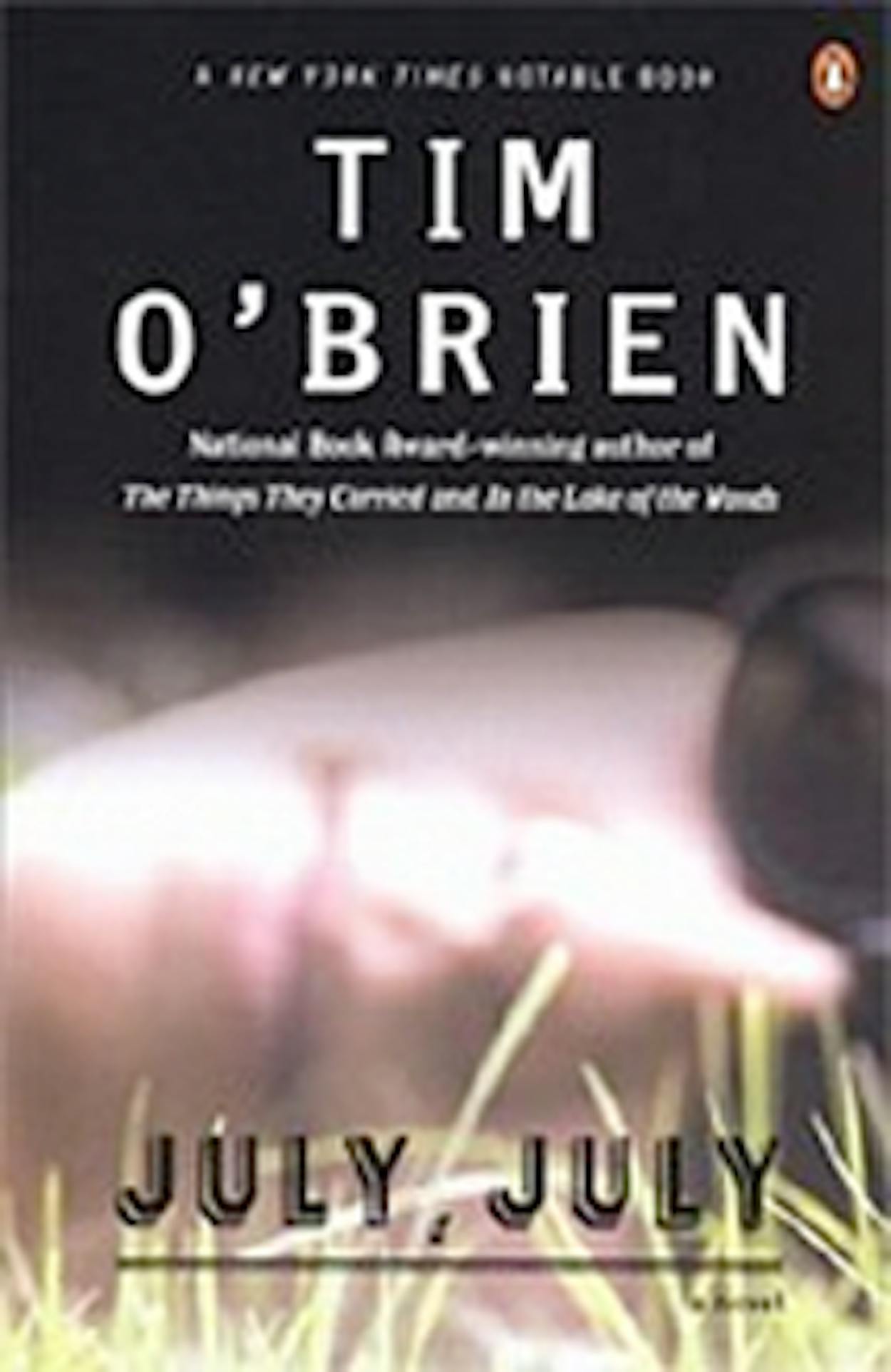Honesty is not always the best policy. At least that’s what Tim O’Brien believes. Here, the author discusses his new book, July, July, and how he uses lies to communicate truth.
texasmonthly.com: You have said that being a writer is difficult because you can’t repeat yourself. With each new work, you have to come up with different ideas. What new themes do you address in your latest book, July, July?
Tim O’Brien: I wouldn’t say that July, July contains new themes, exactly. I’m still interested in the human imagination and memory, issues of moral choice, the good and bad things we will do in search of love. But the individual life stories in the book are new. The stories of Jan, Amy, Marv, David, Ellie, Paulette, Billy, Spook—those are brand-new, and funny and sad and moving, at least to me.
texasmonthly.com: Who or what inspired the characters in this work?
TO: Each character was inspired by something different in the world, so there is no general answer to this question, except to say that the characters (even the women) represent aspects of myself. I know what it is to feel unloved, to want revenge, to make mistakes, to suffer disappointment, yet also to find the courage to go forward in life. Here and there, I’ve borrowed—or outright stolen—events from the real world. For instance, in the case of the character of Marv Bertel, the story is based on a letter I received from a woman who told me that she had become engaged to be married to a man who was pretending to be the writer Tim O’Brien. The story is partly funny, partly infuriating, and partly pitiful.
texasmonthly.com: Why was a college reunion the best setting for you to tell this story?
TO: I chose to set the novel at a college reunion because such an occasion represents for all of us a sort of plateau from which to survey the past, the present, and the future —who we once were, who we are now, who we might become.
texasmonthly.com: There is a lot of hindsight in this story. How do you feel about what ifs? Are they helpful in any way?
TO: Yes, the people in July, July do find themselves looking backward, talking to others and to themselves about those over-the-cliff, fork-in-the-road moments in their lives. I imagine this is what must happen at a 30th college reunion. After all, human beings are not chipmunks—we have memories, we have consciences, we have the capacity to imagine how things might’ve turned out differently had we married Joe instead of John, had we not told that terrible lie one day, had we not posed for dirty pictures one summer, and so on.
texasmonthly.com: What do you hope people take from July, July?
TO: As with any novel, I hope readers feel their hearts being squeezed. I hope they gasp at times, get teary at times, and laugh at times. And I hope readers come to care for these characters, even to love them, as I do.
texasmonthly.com: You have said that fiction is for “getting at the truth when the truth isn’t sufficient for the truth.” Can you talk more about this idea?
TO: Fiction is a lie that is told in the service of truth. Most of the people and events in a novel are invented. And yet the invention—the lie—is a means of approaching emotional and spiritual truths about the human animal. A boy named Huck Finn never actually went down a river on a raft. But the fiction, although a “lie” of sorts, permits the reader access to certain universal truths about the human urge to escape the bonds of conventional society, to light out for the territories, to start over, to seek freedom, to seek a new and better life, to make dreams come true.
texasmonthly.com: Can playing with the truth be risky when writing about a subject as important as the Vietnam War?
TO: No. I mean Yes, which is to say that telling the so-called “truth” can also be risky. What the hell is the “truth?” Or are there many truths, some contradictory? America is a great country. That’s one truth. But it is also true that America is a country that committed the atrocities at My Lai, and practiced genocide against the Indian nations.
texasmonthly.com: Has your writing been therapeutic for you in dealing with your experiences at war?
TO: I suppose the writing has been helpful in a personal, psychological way. But that was never the purpose. The purpose has always been to make art, to make good stories.
texasmonthly.com: Do you think most popular war movies present an accurate portrayal of what war is really like?
TO: Good movies—and good novels, too—do not depend upon “accurate portrayals.” Accuracy is irrelevant. Is the Mona Lisa an “accurate” representation of the actual human model for the painting? Who knows? Who cares? It’s a great piece of art. It moves us. It makes us wonder, makes us gape; finally makes us look inward at ourselves.
texasmonthly.com: What projects are you currently working on?
TO: Right now, I’m finishing up a long book tour in behalf of July, July. I hope your readers will buy dozens of copies as Christmas presents, sell out the stock, and get me off the tour so that I can write again!







